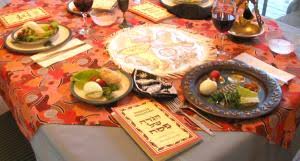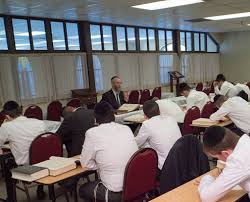Having a Chavaya!

A number of years ago I attended a family bar mitzvah in Israel. Everyone there was related to the bar mitzvah boy. There were grandparents, cousins, aunts, and uncles. I noticed two strangers sitting at one of the tables and wondered how they were related. It turns out they weren’t. They were seminary girls who had called and asked if they could come for Shabbos lunch, since the family was on the list of Shabbos lunch hostesses.
“Why not,” the hostess thought. “There is plenty of food!” The two girls sat though the whole family simcha. I worried about them, because I thought we should be paying more attention to them so they wouldn’t feel like outsiders. But the girls seemed fine and unperturbed by this peculiar situation.
It seems strange to put two perfectly normal girls from normal families in the position of poor people who have no place to eat and need to ask strangers for a place in the middle of a family simcha. This year my granddaughter is in seminary in Israel, and I was interested in hearing about her experiences going to strangers for Shabbos.











